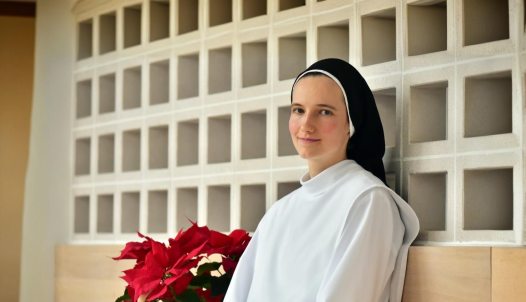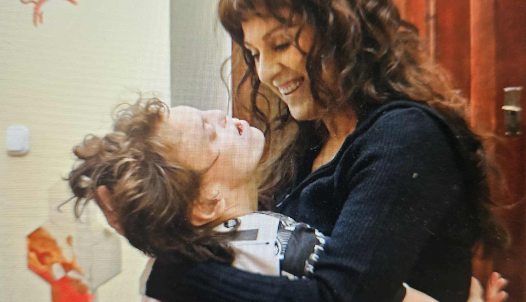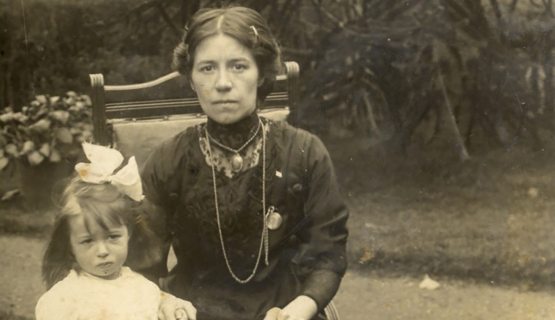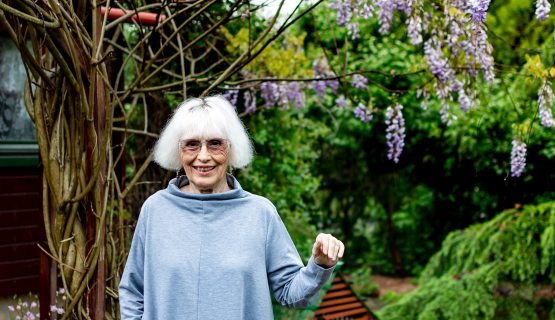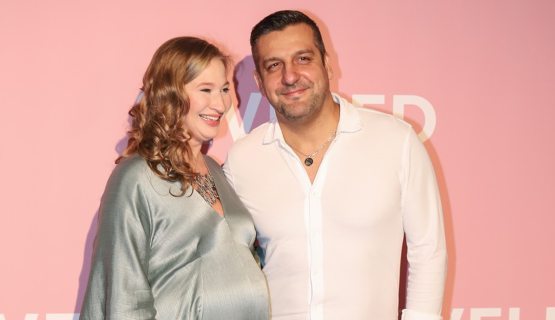A sick child is a catalyser – interview with paediatric neurologist András Fogarasi
The renown of Dr. András Fogarasi, paediatric neurologist, deputy director of Bethesda Hospital, and his department has travelled further than one would think. After all, any news that a doctor and his team not only do everything they possibly can for their patients, but also that they help out families in trouble while displaying the most profound empathy, always takes wing. Particularly in a hospital department where there is no such thing as a ‘straightforward case’ and the definition of success is far from being unequivocal.
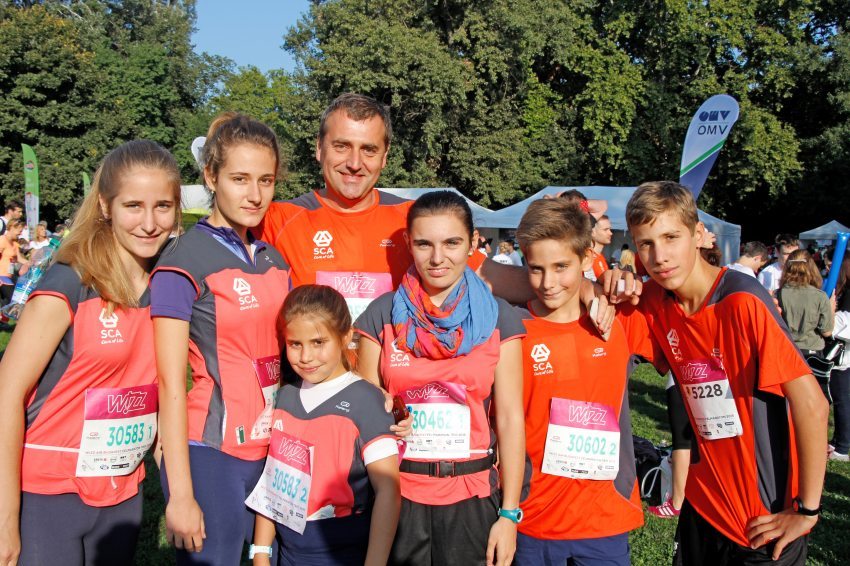
“When I was a junior doctor, it had become accepted practice for parents to remain with their children in the hospital. Our former head of department, Dr. Magda Neuwirth, had been pressing for this much earlier, at a time when doors were closed in the face of relations with the message that their child’s spirit should not be disturbed with their presence. She soon overstepped the old, strictly observed visiting hours. In addition, she was enormously empathetic towards families in trouble, and we succeeded in learning this approach from her.
“Similarly to the oncology department, there are also chronically sick patients in paediatric neurology, so we are in constant contact with families. The leading illness is epilepsy, second place is taken by developmental disorders, while headaches are most common in the outpatient department.
“I don’t necessarily strive for friendly, but certainly empathic relations with families. All my fellow physicians and nurses think likewise. After all, paediatric neurology is a difficult field because in comparison with other departments, here the cure ratio is lower. Still, there are seven specialists at Bethesda and I can say we are all on really good terms with each other.”
I was struck by the thought that maybe the spirit of the child is somehow disturbed by the presence of the parents. And not by their absence?
“This is not so clear. In itself, the fact that a parent is in the hospital with his/her child is no problem. However, this presence can have negative effects as well. For example, there are relatives who try to interfere in the various stages of treatment, and I think it is understandable that this is disturbing for a doctor. But let’s look at this from a different perspective. If the doctors do something that is painful for a three-year-old child while the mother is present, the child can view this as the parent not doing anything to protect him/her.
“So, the parent’s presence is not always a blessing, yet we make every effort to encourage it, indeed these days we couldn’t even conceive of a children’s hospital without parents.
“It is a fact that there are difficult parents. But let’s not blame them, let’s rather say that there are difficult communication situations. The example set by Magda helps to this day. She was always able to enhance the positive qualities of parents whereas in a given stressful situation we are sometimes liable to think the worst of the given mother or father. After all, we are only human, too.”
If it transpires that the child has epilepsy, then in all likelihood the parents also need treatment emotionally. The broad range of reactions seems understandable.
“In the majority of cases this does not come out of the blue but is the conclusion of a lengthy process. It takes a long time before there is certainty from conjecture. I always try to emphasize the positive in what is otherwise bad news. For instance, if the newly diagnosed epilepsy is benign, because in all likelihood the child will grow out of it. If the news is not so good, then in general this is not apparent immediately. We try one drug, then another, if that does not have any outcome, we try a third... We experience the bad news in parallel with the parents. Much patience is required not only for the treatment but in communication as well.
“I have often seen how much the parents’ comprehension changes if they receive bad news. They cannot absorb the words.
“I say what epilepsy is, what mental disability is, but only a tenth of this is taken in. This becomes evident when, although I have said everything without using any Latin, in a clearly comprehensible way, still they ask eight questions about everything they have already heard. I look on this as a challenge: how can I talk to parents in a way that they understand and accept what they are hearing? Communication is a difficult yet wonderful part of the treatment.”
Is this taught at university?
“It is difficult to get across in the framework of lectures, rather it is possible to acquire experience in practice. At the beginning of my medical career, more than 20 years ago, I was able to take part in a three-month spiritual counselling course in America. Lectures in the morning, practical sessions in the afternoon. We visited patients, we sat with the dying, we spoke with families. It happened that once they brought in a critically injured person from a car accident. In just three minutes the traumatologist filled us in on what had happened and then left us to deal further with the relatives... In another case, relatives of a dying patient, who had not spoken to each other in ten years because of mutual disagreements, suddenly turned up. We knew they had just one or two hours and it was important to spend the time wisely. We worked with simple but effective methods.
“We stood in a circle, took each other’s hands and said a prayer, or we asked that everyone should recall a favourite memory about the dying family member. This was fantastic practice that I still utilize to this day.
“Although many of my colleagues have never participated in such practice, still they exhibit exemplary humanity towards their patients. I am eternally grateful that I can work with such people.”
How does empathy manifest itself in everyday situations?
“Let’s say we have a very sick patient whose mother or father is neurotic and difficult to handle. I could, in a completely understandable way, look at it like just another unbearable, hysterical parent whose outbursts are particularly difficult to react to in a good way. But I can also see it from the angle of how I would react if it happened to be one of my children who was so ill.
“In our department, the majority of visits are not the classical hospital visits when a group of white-coated doctors formally proceed from ward to ward, rather we sit down around a table and talk about the patients. Everyone goes to see their own patients daily, but there are only two ward visits a week. The roundtable discussions are extremely significant. On the one hand, we make a conscious effort to reinforce empathy in each other, that is, we talk over what we would do in such a situation, and on the other hand we analyse the cases professionally. But what is perhaps even more important than this is that everyone can freely state their opinion. We can ask each other to reconsider cases without causing friction. I prefer it if we colleagues are equal in status. Give or take a doctorate, I am well aware that I have far more experienced colleagues than myself. To a certain extent this is our mission, too, that resident doctors who come to us see an example of collegial relations, because we know that this is the way to work together.”
What sense of achievement is there in the department?
“Obviously, the real sense of success comes with a complete cure, but every small step brings joy. If instead of 20 seizures a day we see only three, then this is a great thing. Another success story is if I can establish that there is no real problem with a child. Furthermore, that a half of young patients grow out of epilepsy. But there can also be beauty in those stories where we have not been able to cure somebody. We know of one family with seven children, where the sixth is seriously disabled due to a genetic disease. I have seen how this child is surrounded by boundless love. It is not difficult to love a sick child. But to see how this small being brings the entire family together is an important source of inspiration for me.
“A sick child is a catalyser: if the family is fractured, then it speeds up the fracturing, if it is harmonic, then it brings them together even more.
“I have seen this as well, I look on this as a success, too. The death of a child is unimaginably difficult to process, and yet I feel that the greatest trial of strength is when a family has to care for a seriously ill child 24 hours a day for decades, and in a way that, rationally speaking, the parents wake up every single day to a hopeless situation. There are different degrees of handicap. I see cases where, through a normal human eye, there is nothing attractive in a young patient, and yet the parents can love him/her very much. This gives strength and engenders respect. At the end of a working day I go home to my healthy family, but they have to remain with their sick children 24/7.”
At home as well, you and your family have taken on a big task because you adopted a child.
“Ten years ago we had five children, and God planted the desire in us for another, although things worked out slightly differently. Niki came to us when she was ten, as our sixth child. She had lost her parents in a fire. She came to us for rehabilitation, although she herself had not been injured in the fire, just that at that time there was nowhere for her to go. Nobody visited her, she had no relatives. I told my wife, Virág, a lot about her. We knew that at ten years of age, nobody would be fighting to adopt her, and that she would go into a state home. One day, we just looked at each other and said: why don’t we adopt her? After this, during hospital voluntary charitable service our children also got to know her. Finally, it worked out so that our children also agreed that we should adopt her.
“It was tough for Niki to begin with, but after six months she was calling us mum and dad. She had never gone to school up to the age of ten, she had never been read a fairy tale, she had lived in insecurity and now she is good at basketball, she goes skiing and she takes her school-leaving exams this academic year.
“At the beginning, fantastically warm-hearted teachers at a run-down church primary school agreed to get her up to speed, and they did such a great job that we took our three youngest out of an elite dual language grammar school and moved them there. Smaller classes, more attention – that worked. Niki is our truly dependable child who has fully integrated into the family.”

